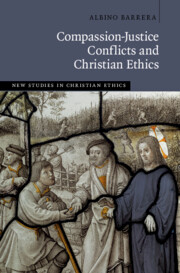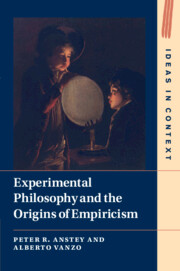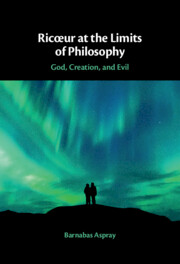119 results
Myth 14 - That Darwin’s Critics Such as Owen Were Prejudiced and Had No Scientific Arguments
-
-
- Book:
- Darwin Mythology
- Published online:
- 30 May 2024
- Print publication:
- 06 June 2024, pp 159-170
-
- Chapter
- Export citation
Chapter 11 - Wagner, Schopenhauer, and the World as a Phantasmagoria
- from II - People
-
-
- Book:
- Wagner in Context
- Published online:
- 14 March 2024
- Print publication:
- 14 March 2024, pp 113-121
-
- Chapter
- Export citation
6 - The Legitimacy Thesis
- from Part II - Stability, Legitimacy, and Democracy
-
- Book:
- Statehood as Political Community
- Published online:
- 15 February 2024
- Print publication:
- 22 February 2024, pp 169-197
-
- Chapter
- Export citation
The Effect of Rousseau on Kant’s Resolution of the Antinomy of Practical Reason
-
- Journal:
- Kantian Review / Volume 28 / Issue 4 / December 2023
- Published online by Cambridge University Press:
- 16 November 2023, pp. 519-536
- Print publication:
- December 2023
-
- Article
- Export citation
12 - Seeking Enlightenment in Mozart’s Magic Flute
- from Part III - Approaches and Perspectives
-
-
- Book:
- The Cambridge Companion to <i>The Magic Flute</i>
- Published online:
- 24 November 2023
- Print publication:
- 02 November 2023, pp 187-199
-
- Chapter
- Export citation

Compassion-Justice Conflicts and Christian Ethics
-
- Published online:
- 19 October 2023
- Print publication:
- 02 November 2023
Between ‘Indubitably Certain’ and ‘Quite Detrimental’ to Philosophy: Kant on the Guise of the Good Thesis
-
- Journal:
- Kantian Review / Volume 28 / Issue 4 / December 2023
- Published online by Cambridge University Press:
- 16 October 2023, pp. 537-553
- Print publication:
- December 2023
-
- Article
-
- You have access
- Open access
- HTML
- Export citation
Chapter 9 - Film Scripts
- from Part II - The Literary Works
-
-
- Book:
- W. G. Sebald in Context
- Published online:
- 24 August 2023
- Print publication:
- 07 September 2023, pp 76-84
-
- Chapter
- Export citation
10 - Kant on History, or Theodicy for Mortal Gods
-
-
- Book:
- Time, History, and Political Thought
- Published online:
- 08 June 2023
- Print publication:
- 22 June 2023, pp 216-236
-
- Chapter
- Export citation
Chapter 6 - Neo-Kantianism and Moral Education
- from Part I - Historical Insights for Contemporary Moral Education
-
-
- Book:
- Moral Education in the 21st Century
- Published online:
- 01 June 2023
- Print publication:
- 15 June 2023, pp 94-112
-
- Chapter
- Export citation
Dignity, Dementia and Death
-
- Journal:
- Kantian Review / Volume 28 / Issue 2 / June 2023
- Published online by Cambridge University Press:
- 30 March 2023, pp. 221-237
- Print publication:
- June 2023
-
- Article
-
- You have access
- Open access
- HTML
- Export citation
Chapter 8 - Kant and the Genesis of Empiricism
- from Part III - From Experimental Philosophy to Empiricism
-
- Book:
- Experimental Philosophy and the Origins of Empiricism
- Published online:
- 17 February 2023
- Print publication:
- 23 February 2023, pp 234-257
-
- Chapter
- Export citation

Experimental Philosophy and the Origins of Empiricism
-
- Published online:
- 17 February 2023
- Print publication:
- 23 February 2023
Legal Obligation, Criminal Wrongdoing, and Necessity
-
- Journal:
- Canadian Journal of Law & Jurisprudence / Volume 36 / Issue 2 / August 2023
- Published online by Cambridge University Press:
- 16 February 2023, pp. 437-462
- Print publication:
- August 2023
-
- Article
-
- You have access
- Open access
- HTML
- Export citation
Lotze on Comparison and the Unity of Consciousness
-
- Journal:
- Canadian Journal of Philosophy / Volume 52 / Issue 5 / July 2022
- Published online by Cambridge University Press:
- 16 February 2023, pp. 556-572
-
- Article
-
- You have access
- Open access
- HTML
- Export citation
The Gallows Alien: Extending the Concept <Person> to Non-Human Organisms
-
- Journal:
- Dialogue: Canadian Philosophical Review / Revue canadienne de philosophie / Volume 61 / Issue 3 / December 2022
- Published online by Cambridge University Press:
- 06 February 2023, pp. 431-450
-
- Article
-
- You have access
- Open access
- HTML
- Export citation
Chapter 9 - Normative Science
-
- Book:
- Charles Peirce and Modern Science
- Published online:
- 26 October 2022
- Print publication:
- 15 September 2022, pp 218-251
-
- Chapter
- Export citation

Ricœur at the Limits of Philosophy
- God, Creation, and Evil
-
- Published online:
- 18 August 2022
- Print publication:
- 25 August 2022
Chapter 8 - The Sublime
- from Part II - Development
-
-
- Book:
- Nature and Literary Studies
- Published online:
- 22 July 2022
- Print publication:
- 04 August 2022, pp 161-176
-
- Chapter
- Export citation
Explaining Synthetic A Priori Knowledge: The Achilles Heel of Transcendental Idealism?
-
- Journal:
- Kantian Review / Volume 27 / Issue 3 / September 2022
- Published online by Cambridge University Press:
- 21 April 2022, pp. 385-404
- Print publication:
- September 2022
-
- Article
- Export citation



